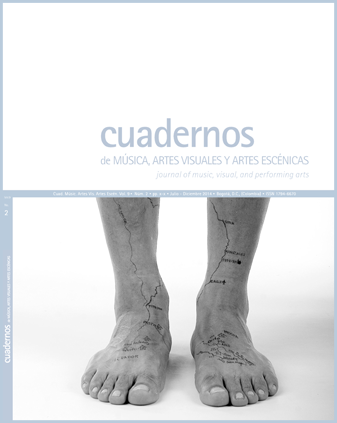Abstract
En el siguiente artículo, presentaremos el análisis de imágenes de dos comerciales televisivos que circularon en Colombia, para la promoción de Buscapina Fem, un fármaco para “aliviar los dolores menstruales”. Pensamos que desde de estos comerciales, podemos revisar las formas en las que se actualizan, a través de la sintomatología del llamado síndrome pre-menstrual, las nociones elaboradas en torno a la histeria femenina (que se supone hoy eliminada como diagnóstico médico). Consideramos que la relación entre la producción farmacéutica y las representaciones mediáticas, en el caso de Buscapina Fem, evidencia la transformación de las técnicas de gobierno propias del liberalismo, a las técnicas de gobierno del neoliberalismo. En esta última fase del capitalismo, el consumo de ciertos fármacos, como el que nos compete, ya no está mediado ni dirigido específicamente por la institución médica, sino que son los medios masivos de comunicación los que lo ofrecen y legitiman.
This journal is registered under a Creative Commons Attribution 4.0 International Public License. Thus, this work may be reproduced, distributed, and publicly shared in digital format, as long as the names of the authors and Pontificia Universidad Javeriana are acknowledged. Others are allowed to quote, adapt, transform, auto-archive, republish, and create based on this material, for any purpose, provided the authorship is duly acknowledged, a link to the original work is provided, and it is specified if changes have been made. Pontificia Universidad Javeriana does not hold the rights of published works and the authors are solely responsible for the contents of their works; they keep the moral, intellectual, privacy, and publicity rights.
Approving the intervention of the work (review, copy-editing, translation, layout) and the following outreach, are granted through an use license and not through an assignment of rights. This means the journal and Pontificia Universidad Javeriana cannot be held responsible for any ethical malpractice by the authors. As a consequence of the protection granted by the use license, the journal is able to publish retractions or to correct information already published. Publishing contents in this journal does not generate royalties for contributors.


